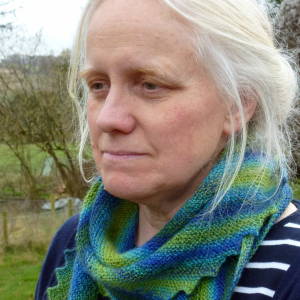Cars slowing
Usually traffic leaving the village speeds up sooner than it should: the 30mph limit ends beyond our house, at the bottom of the lane up the hill, but many cars drive past much faster. At teatime, as I trotted as briskly as I could along the short stretch of road which takes me under the mess of cables and opens up a clear view across the field to the sunset, I realised cars were slowing down as their occupants gazed at the intensely pink, mauve and red sky. I had seen the colours forming, reached my usual sunset photography spot and taken one photo, then found the battery out of power. I rushed back home, grabbed a different camera, and returned as quickly as I could; the light was fading fast, but the colours were still intense.
I hadn't been out earlier, because of an unexpected morning phone call from a community physiotherapist who told me that following a cancellation she could come to see J before lunch. I guessed and confirmed that this was the physiotherapist attached to the community rehabilitation team to which J was referred following her surgery in the summer: the post-discharge support plan included a request for some physiotherapy support to help us establish passive stretching routines which would be safe and beneficial during the recovery period. It is now six months since she was discharged: I have been stretching J, carefully and as best I can, with some advice by telephone from other professionals we are in touch with for different reasons. The physiotherapist was friendly, looked at what I'm doing and made some suggestions, so the meeting was of some help; but it's a one-off visit, with no follow-up planned, and to be really useful it needed to happen five or six months ago. Other parts of the post-discharge support came a little more quickly: the speech therapist contacted us regarding swallowing about six weeks after discharge, and the dietician in December. Fortunately we had not experienced any major difficulties, and J's day to day care and support were already in place prior to her hospital admission; if we had chased things up more, or made frantic phone calls about things going wrong, she would perhaps have been seen more quickly. However, this is another dimension of the ongoing issues of delayed discharge and bed-blocking, leading to delayed admissions, in the NHS. We hear a lot about the crisis in social care, which is making it very difficult to find support for disabled and frail people in their homes and allow them to be discharged from hospital, but community health services, which are key to enabling people to be at home rather than in hospital or institutional care, also seems to be badly overloaded, probably because of both staff shortages and increased demand. It's becoming a huge worry for so many people.

Comments
Sign in or get an account to comment.


